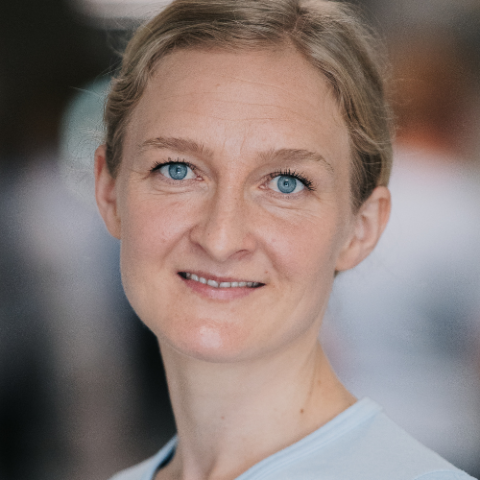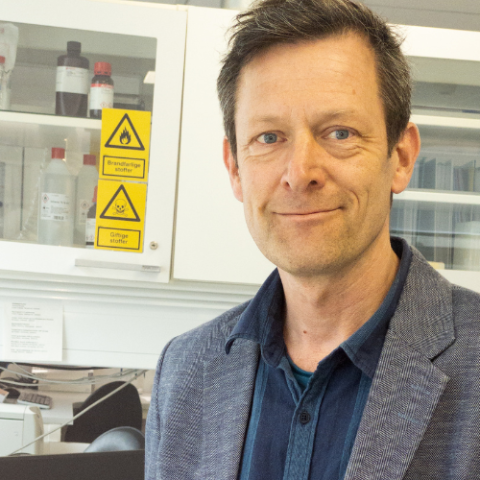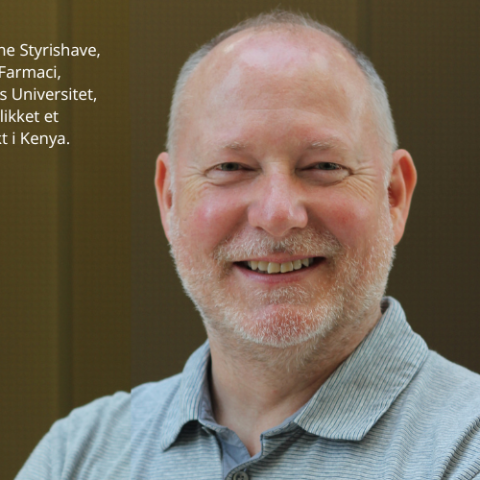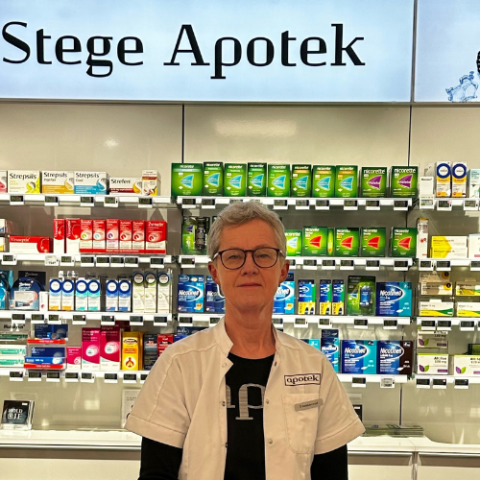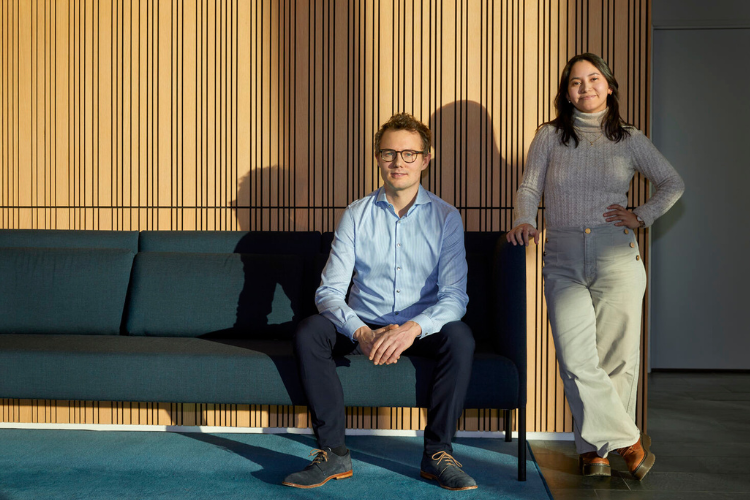
The best match was Chilean
Pharma 02/2023 - Theme: International recruitment
By 2030, the Danish life science industry will lack approximately 12,000 employees. For that reason, Denmark needs to be able to attract and retain international students. Pharmadanmark has chosen to focus politically on international students – in this theme, Pharma meets three foreign profiles and two executives in the industry who hire them.
By Christian K. Thorsted, Photo/ Camilla Schiøler
There is a very long way from Santiago de Chile to Copenhagen – both in terms of distance and culture, and especially on a January day certainly also in terms of climate.
Nevertheless, this is the journey that 28-year-old Daniela Narváez has taken to work as Regulatory Affairs Professional at Novo Nordisk in Søborg.
"I actually thought what the exact opposite of Chile would be when I wanted to go abroad to continue my studies and work in life science – I came to the conclusion that it had to be Denmark, when you look at the culture, the people, the food, and of course the long, dark winters," Daniela Narváez laughs.
She has a bachelor's degree from the Pontificia Universidad Católica de Chile in Pharmaceutical Science, but abroad drew in her.
"I wanted to go to Europe because European countries are generally very safe to be in. My knowledge of Denmark was not that great, but I knew that the country had been named number one and two among the happiest in the world several times, and that sounded promising.
I also knew Novo Nordisk and a few of the other large pharmaceutical companies in Denmark, so I ended up applying for admission to the Master's programme Pharmaceutical Science at the University of Copenhagen," she says.
Great upheaval
Daniela Narváez makes no secret of the fact that it was a big change for her to come to Denmark as a student.
"In Santiago, I am used to having people around me all the time – it was a strange feeling that there is physically more space here in Denmark. And then there's the fact that, as a Chilean, I gesture and use great gestures when I express myself. I also had to learn to turn it down a bit."
In addition, there were the purely practical challenges, especially finding housing.
"It's very different compared to Chile – you can get a rental property there if you have the money to do it. In Denmark, you almost have to be recommended to come into consideration – in other words, networking means a lot."
However, she also says that the cultural encounter was not initially so overwhelming because the master's programme in Pharmaceutical Science is so international – only a handful of fellow students were Danes.
"So really, I didn't have much contact with 'Danish society' at the time. Only now working here at Novo Nordisk I really feel that I understand the Danes and how Denmark works," she says and adds:
"But Novo Nordisk is a very international workplace, so I have many colleagues who are not Danish either, and who also come with their own culture and way of being."
Difficult encounter with the labour market
During her studies, Daniela Narváez chose to specialize in Regulatory Affairs.
"Basically, I just like rules, and that's exactly what Regulatory Affairs is centered on, and which helps to ensure that patients receive safe and effective products. I also worked as an RA/QA Assistant in a start-up company during parts of my studies, specifically on issues related to European medical device legislation. It just made it even more clear to me that it is in that field that I see myself. It's no coincidence that I'm working with Regulatory Affairs today," she emphasizes.
But when she completed her master's degree in June last year, the meeting with the Danish labour market was not without challenges – even though there is generally a great demand for professionals within Regulatory Affairs.
"One of the reasons why I chose to travel to Denmark was that I anticipated there would be good job opportunities for me later. But I must have sent 400 applications before I succeeded. Of course, it was somewhat frustrating because I knew I had something to offer. I found out along the way that I had to put aside the slightly American way we Chileans can be: In the applications we really want to show how good and perfect we are and that we know everything."
"In this country, that is not well received. You also have to really radiate that you want to work as part of a team. In this way, there are very different values and work cultures in Denmark and Chile, and as a foreigner in the Danish labour market, you have to be able to find your way in order to get a chance."
Here, the Greater Copenhagen Career Program – a free course that prepares international students for a career in Denmark - was a great help, says Daniela Narváez.
Good match
Daniela Narváez originally applied for a different job at Novo Nordisk than the one she currently holds. But her application was instead – with her consent – forwarded to Morten Mikél McNair, Team Leader, Combination Products, Regulatory Affairs. He was in search of a new profile for his team.
"With my level of experience, I really wasn’t the right fit a senior position, but luckily Morten found that I fit into his team. He could see that of course I don't have a Curriculum Vitae with a lot of experience, but that I can contribute with something else to the team – everyone in the team is super talented, but it's also about complementing each other."
Demand for highly educated people
Morten Mikél McNair is also very pleased that Daniela Narváez chose to go to Denmark to study – and afterwards applied for a job at Novo Nordisk.
"When you look at it in general, there is definitely a great demand for highly educated employees for the life science industry, and this is certainly also something we can feel in the regulatory area with medical devices, which I work in – not least because all companies now have to meet increased approval requirements for these types of products. At the same time, Novo Nordisk is expanding and in need of a lot of talented people – at a time when there are not necessarily many to get."
"Therefore, a company like Novo Nordisk must, among other things, try to find and retain talents like Daniela," says pharmacist Morten Mikél McNair, Team Leader, Combination Products, Regulatory Affairs – a department that specializes in regulatory matters regarding combination products.
In 10 months, he has doubled the size of the team and hired five people. The device area, of which his team is a part of, currently accommodates 30 people of 14 different nationalities from five different continents.
"We don't get 80-100 applicants for every position we advertise, but we have managed to attract some really strong candidates at the different levels. We are probably also helped by the fact that Novo Nordisk is such a strong brand with a clear mission – both in Denmark and globally – and many want to work here."
"I can feel that Novo Nordisk is undergoing a rapid development and has become part of the large global pharmaceutical companies. It gives a natural attention. In addition, our corporate culture with a focus on empowerment and personal development is also a major reason. If you are ambitious, the opportunities in a company like Novo Nordisk are really good," he says and elaborates:
"When we recruit for the team, we first analyze what we need. After all, it is important not only to have a team of people with many years of experience, but that there is a mix of new and more experienced people. Daniela has not a long professional experience in RA, but she has a lot of good energy and passion for her field of expertise and is eager to grow and learn. She was the right match in the team."
A strength in diversity
Morten Mikél McNair sees great strength in the fact that his team – and Novo Nordisk as a whole – has such a great diversity.
"If you use that diversity in the right way, you increase the team performance. But as a leader, it requires some cultural understanding, and also an acceptance of the fact that we are different. It's an exciting challenge."
He concludes:
"But to me, it's not a question of necessarily striving to bring as much diversity into your team as possible – it's about having a truly inclusive culture, being aware of your biases, and recruiting the best and strongest candidates."
Photo caption: Morten Mikél McNair found a good match for his team in Daniela Narváez – she comes from Chile, but has studied in Denmark and has chosen to stay here.
Other articles in English from Pharma 2/2023:
- Lundbeck: We need more than just Danish talents
- Friends and student jobs are vital for your stay in Denmark
- Denmark should boast a little more
- International students generate big gains
Magazine: Pharma 02/2023 (in Danish)




